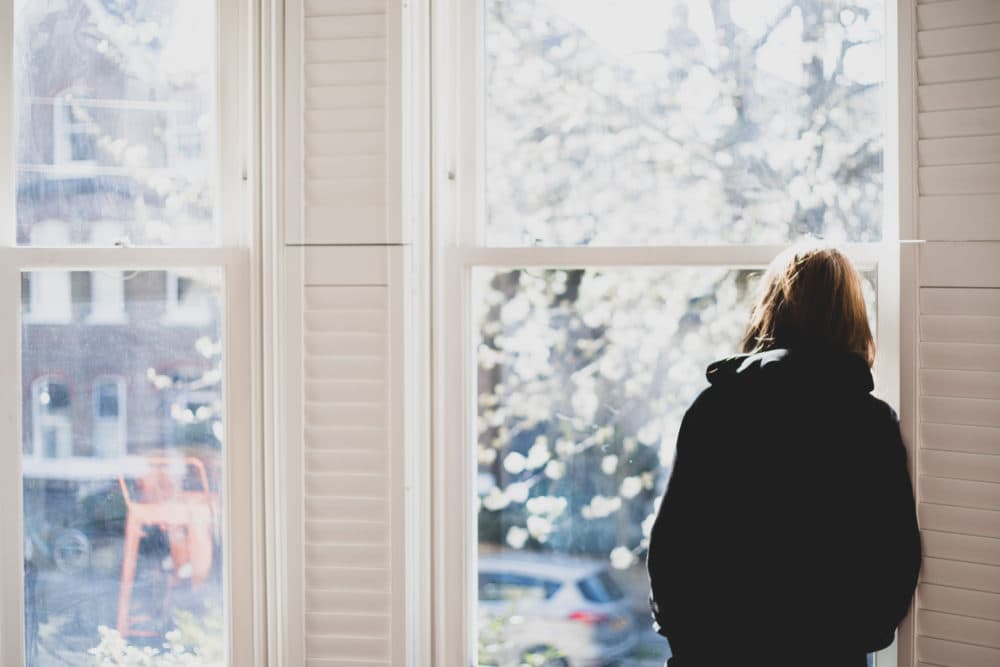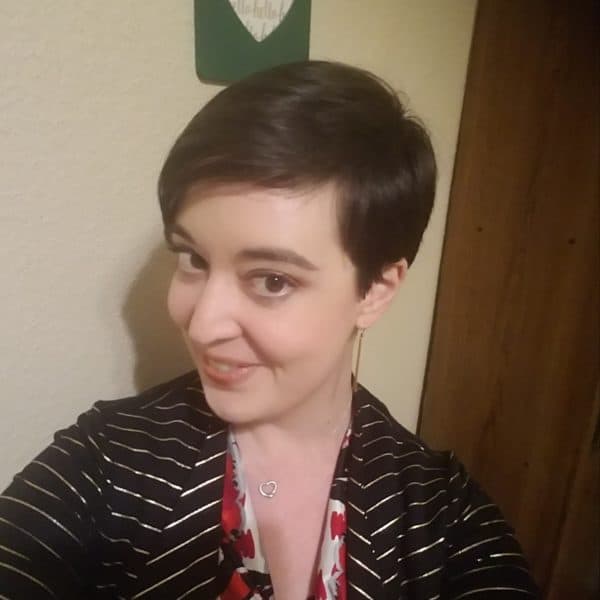Advertisement
Commentary
How A Year Inside, Before COVID, Taught Me To Lean Into Solitude

“I find it wholesome to be alone the greater part of the time,” Henry David Thoreau wrote in Walden, extolling the virtues of solitude.
After spending over a year in quarantine, I’m inclined to disagree for the most part.
As someone whose chronic illness places me in the high-risk category, I haven’t set foot in a grocery store, eaten at a restaurant, or hugged a single friend since early March of 2020. My pixie cut has grown into a ponytail of split ends, staring back at me from the tiny right-hand corner of my computer as I correct my students’ violin playing online.
As the weather warms and the sky returns to the color it was when the world first began to socially distance, it’s not hard for me to remember the year I spent even more restricted than I am now. Six years ago, at the age of 27, I lay bedridden in a small room during a year-long battle with brain inflammation.
Alone in my bed that year, my broken mind couldn’t connect to friends and family, even if they were sitting beside me. Conversation dissolved into a repetitive and meaningless mess, derailed by my aphasia, short-term memory loss, and hallucinations.
Everyone who has ever had a serious illness has accomplished the impossible task of either rebuilding themselves or rebuilding their expectations of the world.
Isolation can be refreshing when it’s a choice, as it was for Thoreau. When it becomes necessary for our survival, isolation is one of the harshest conditions humans will ever have to endure.
This past year, I saw the impact of this loss of connection in my students. They answer in monosyllables, lose focus often, and forget assignments. I see the effects of isolation in my adult colleagues’ perpetual exhaustion and in their cynicism.
During the long months I spent confined to a single bedroom and unable to connect with the outside world, I was forced to search inside myself to find a way to survive. Ironically, the same brain that had forgotten my parents’ names and how to play the violin became my greatest asset. When the word “rebuilding” drifted through my mind like a lone tumbleweed, I latched onto it.
Rebuilding: a concept optimistic to the point of arrogance. The career I had worked so hard for had stalled. I couldn’t read, remember chunks of my life, or organize my own medicine in my pillbox. Broken would have been a more accurate description of my state, but rebuilding was the idea I clung to.
Advertisement
When Thoreau chose the isolation of Walden Pond, he did so to shift his perspective. It was around my third month bedridden that, isolated and unable to shift my own body from one foot to another, I realized shifting my perspective was my only option.
To my doctors’ surprise, my irrational belief in rebuilding myself slowly became reality. My experience of being isolated and near death will always stay with me, but over the next nine months I was able to rebuild the parts of myself my doctors feared would never come back: my memory, my ability to communicate, and what I had missed the most — my ability to connect with the world outside myself.
Everyone who has ever had a serious illness has accomplished the impossible task of either rebuilding themselves or rebuilding their expectations of the world. When I was at my sickest, I didn’t notice the microscopic cells and clusters of neurons that had already started to repair my brain, yet there they were, stitching me back together despite the severity of the wound.
[I]solated and unable to shift my own body from one foot to another, I realized shifting my perspective was my only option.
My first solo trip outside my house, eight months after I first fell ill, lingers in my mind. I still remember the freshness of the air damp with rain, the smile of the pharmacist. I remember the excitement of seeing colorful pens and stationery arranged in the aisle of a store, and the gleeful knowledge that I could move my arm and pick up any one I desired.
I’ll never forget the way solitude taught me to cling to hope wherever I could find it. I’ve learned hope is the one thing it’s acceptable to believe in without reason or evidence.
Over the next several months, those of us who are still quarantining will reenter the world. We will see each other in the workplace, in the grocery store, in the street rather than from behind the anonymity of a computer screen: a wonderful and terrifying prospect.
Until then, let’s choose to spend the last few months leaning into solitude as Thoreau did and embracing the lessons it teaches us, knowing solitude is not forever. Let’s turn off Spotify and listen to the birds outside our windows. Instead of watching the news and succumbing to groupthink, let’s listen instead to the quiet true voice inside our hearts. Let’s allow our minds to entertain the irrational hope that America can rebuild itself.
Perhaps Thoreau sums up the irrational hope of rebuilding that solitude gifts us best: “If you have built castles in the air, your work need not be lost; that is where they should be.”
